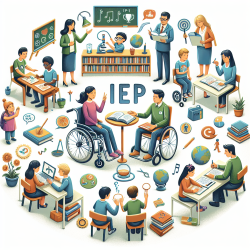Developing fine motor skills is an essential part of a child's growth and learning journey. These skills involve the coordination of small muscles in the hands and fingers, crucial for everyday tasks like writing, cutting, and buttoning clothes. At TinyEYE, we understand the importance of supporting children's development in a fun and engaging way. Here's a comprehensive guide filled with activities and advice to help your child thrive.
Understanding Fine Motor Skills
Fine motor skills are vital for children's independence and success in school-related tasks. These skills involve using the small muscles of the hands for tasks such as holding a pencil or using scissors. It's essential to remember that children often develop gross motor skills before fine motor skills, so integrating activities that promote both can be beneficial.
Identifying Common Challenges
Children may face various challenges while developing fine motor skills, such as:
- Slouching or leaning due to poor posture or low muscle tone.
- Loose or tight grip due to muscle strength issues.
- Difficulties with concentration or following page layouts.
- Fidgeting or having trouble using scissors or cutlery.
Addressing these challenges involves understanding their possible causes and trying different strategies tailored to each child's needs.
Engaging Activities for Development
Here are some practical activities you can try at home to support your child's fine motor skill development:
Finger Isolation Activities
- Finger painting and pinching play dough help strengthen individual finger control.
- Popping bubbles with the index finger can improve precision.
- Using tweezers to pick up small objects enhances dexterity.
Bilateral Coordination Activities
- Playing with a ball using both hands encourages coordination.
- Pushing a large ball or clapping games improve arm synchronization.
- Crawling or creeping on hands and knees strengthens overall coordination.
Visual Perception Exercises
Visual perception is crucial for interpreting visual information accurately. Try these activities:
- Puzzle games like jigsaws improve spatial awareness.
- "I Spy" games enhance attention to detail and memory.
- Sensory boxes filled with tactile toys provide sensory input to keep children focused and organized.
The Role of Handwriting
Handwriting is an integral part of fine motor skill development. Encourage your child by focusing on the four P's: Posture, Paper, Pen, and Presses (proprioception). Use raised line paper for better guidance and practice proper pencil grips to promote effective writing habits.
For more information on supporting your child's fine motor skill development, please follow this link.










